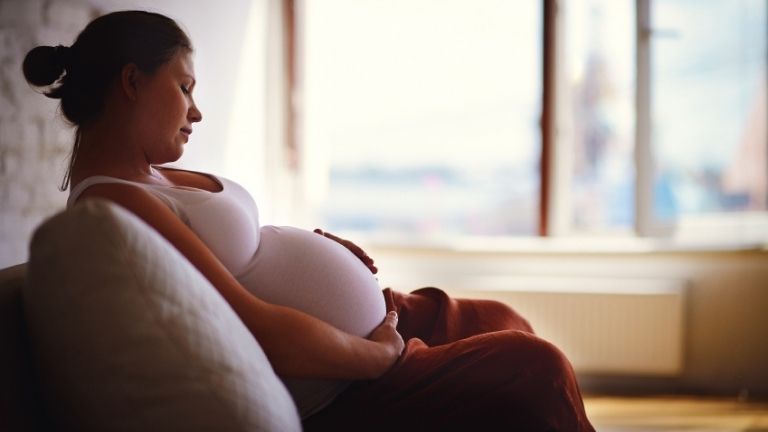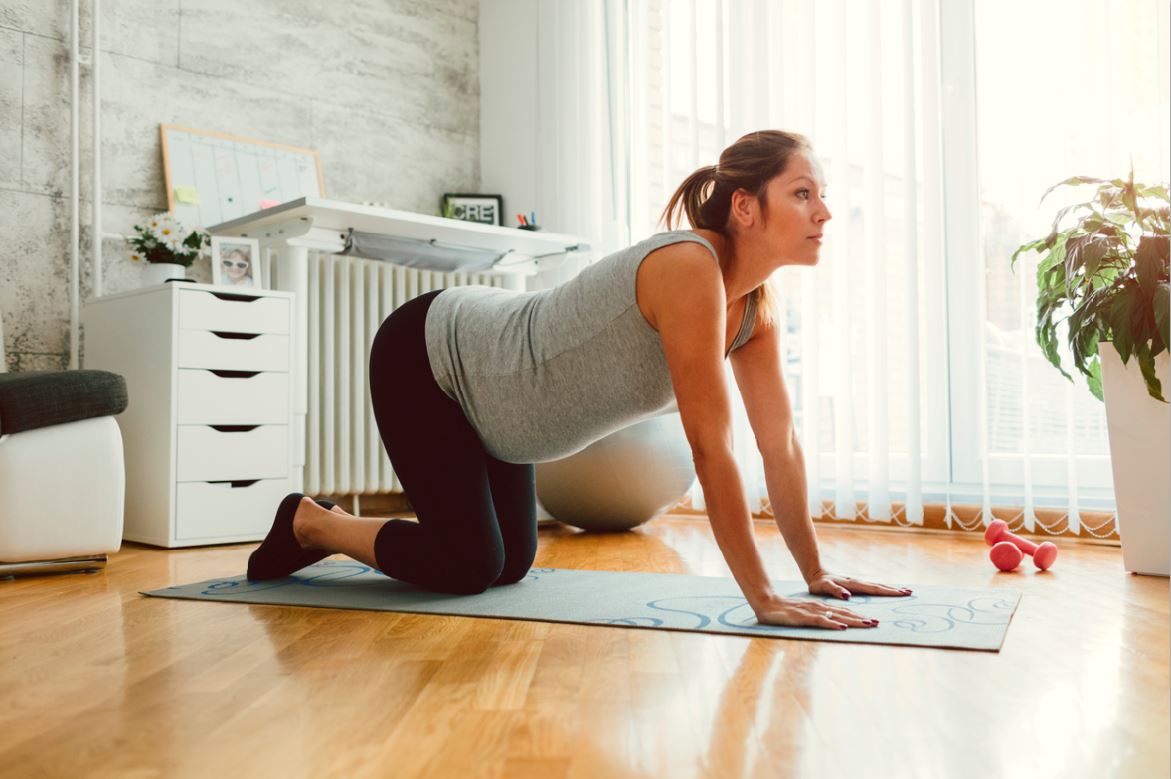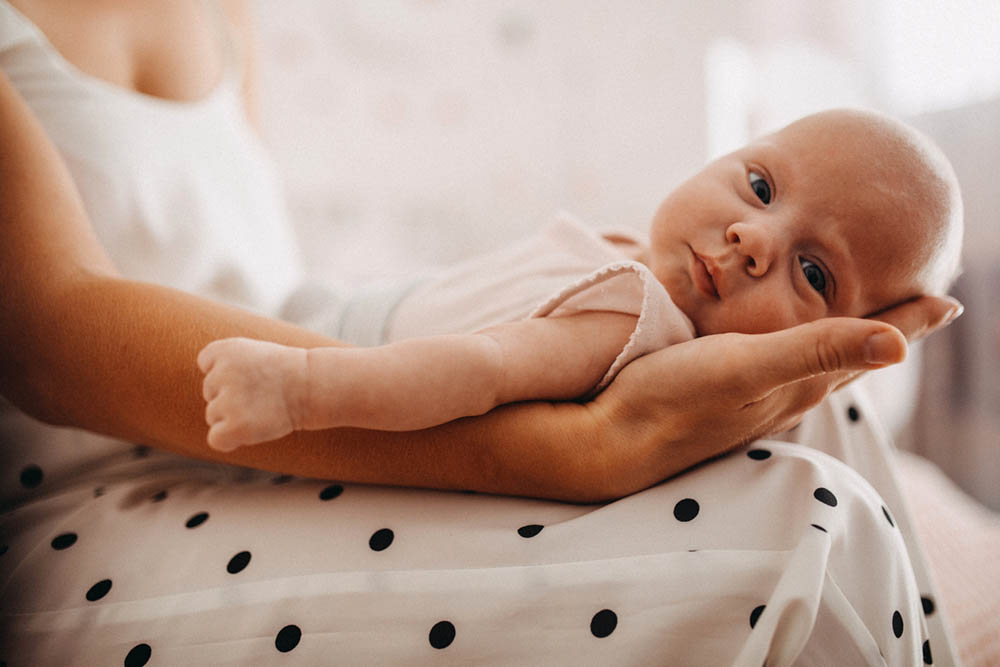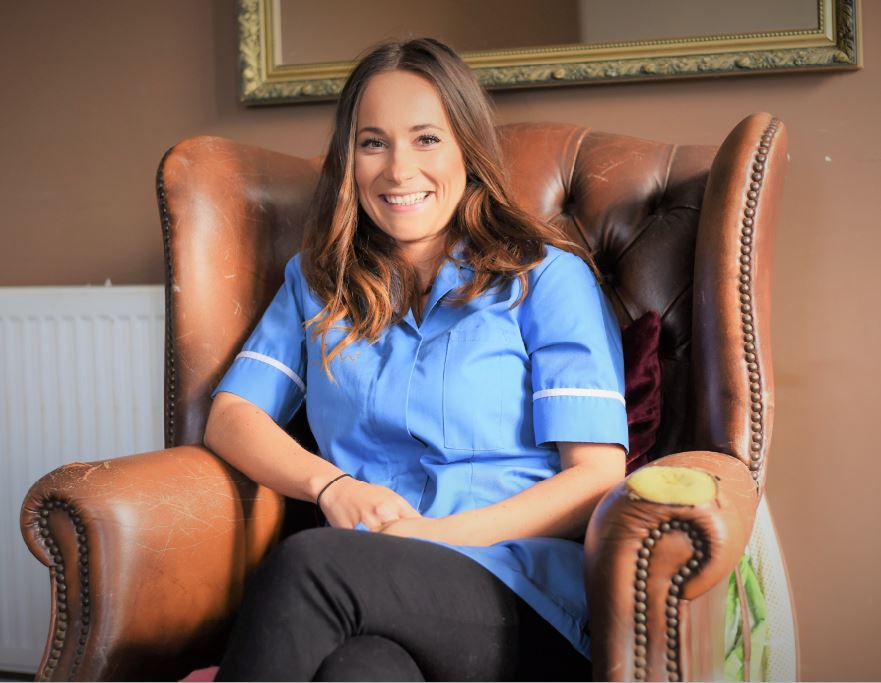Pregnancy stress during the pandemic? Midwife Marie Louise offers her advice on how to stay calm in the lead up to labour, despite the current crisis
Expectant mums have enough to feel anxious about, without Covid-19 getting them down too.
Navigating and adapting to a rapidly changing situation while trying to maintain a relaxed and mindful pregnancy can feel daunting, especially as birth plans may need to change due to the coronavirus pandemic.
However, all expectant mothers should be reminded that no matter what, their midwife will be there for them as they would be at any other time.
their midwife will be there for them as they would be at any other time
Nothing will affect their midwife and birth teams’ skills, experience and dedication to looking after them and their baby. Rest assured that you will be well cared for, fully supported and safe.
To help expectant mums practice mindfulness and lessen their anxiety and pregnancy stress, Healthista caught up with midwife, hypno-birthing expert, author and expert at Biamother, Marie Louise (aka The Modern Midwife) who offers her advice on how to stay calm in the lead up to labour, despite the current pandemic…
#1 Prepare your mind as well as your body
During pregnancy, it is particularly important that you try to do as much as you can to prepare not only your body, but your mind too for childbirth.
Take this ‘enforced’ down time (maternity leave and lockdown) as an opportunity to really focus on yourself and your bond with your baby. Meditation, mindfulness and self care techniques will all help to block out any outside stressors and focus on your soon to arrive baby.
The little things we can do daily make a big difference to our overall mental health
When we remain in a heightened state of awareness and anxiousness, our bodies are surviving rather than thriving. But, restoration and down time will help the body to perform at its best.
The little things we can do daily make a big difference to our overall mental health. So, if you suddenly find yourself feeling anxious, drop your shoulders, take a few slow deep breaths, making the out breath longer than the in breath.
Reading, taking a bath, going for a walk or even sitting down to watch a feel good film, will help you to de-stress and improve your mind and mental well-being.
Pay attention to what’s going on in your body, your breath and your mind. Being in tune with your body can lead to a better mindset and, subsequently, a more positive birth experience.
#2 Use the resources that are available to you
It is tough not being able to attend those antenatal classes you had planned, especially if this is your first pregnancy.
However, there is still a lot that you can do to stay informed, which will lead to confidence and a more positive mindset surrounding the birth.
We are so lucky to be living in this digital age, with many opportunities to connect from afar. Whether that’s WhatsApp, Mush Mums, Facetime, Zoom or House Party, there are so many platforms now that can help you keep in contact and get support when you need it – whilst sitting in your pyjamas!
We are so lucky to be living in this digital age, with many opportunities to connect from afar
Having a high level of support and feeling well-informed, alongside practicing daily breathing and exercise routines, is the recipe to feeling calm and in control of your pregnancy.
If you are looking for an easy to use and helpful app, I (and Healthista) recommend Biamother – the world’s first app that cares for new and exectant mums, and during the current global pandemic, it is especially focused on ensuring that pregnant and postnatal women isolating at home can still access expert guidance throughout their pregnancy.
For more pregnancy tips and expert advice, you can download the Biamother app here, and enjoy a 14-day free trial.
#3 Isolation isn’t all bad
Something else that may worry you is the fact that whilst self-isolation is advised, you may not have the support you originally planned for in your first weeks after birth.
Fear not though, as I have always recommended that women stay at home with their baby and their partner for at least the first two weeks after birth.
For those first two weeks, limiting visitors is actually a good idea, as you will need time to recover, sleep, not think about housework and avoid playing the host.
Newborn babies don’t like being passed from person to person in those early weeks
During quarantine, it doesn’t matter if you don’t make it out of your dressing gown, have greasy hair or dirty dishes. Newborn babies don’t like being passed from person to person in those early weeks either, it can be unsettling and over stimulating for them.
Instead, they need to get used to life outside the womb, their new environment and to be close to the voices, people and smells they recognise. Take this extra time at home together as time to settle in with your new family.
This is a difficult time for us all, but remember that you have grown a beautiful baby from just two cells in only nine months. You are a miracle and your body is phenomenal. It knows what it is doing regardless of what is going on in the world.
Your body has inbuilt intelligence that has been evolving over millions of years and Covid-19 doesn’t have the power to take that away. Get ready for what will be an incredible journey.
Marie Louise is an experienced Midwife, author of The Modern Midwife’s Guide, qualified adult educator and hypnobirthing teacher.
Marie Louise is a highly sought-after expert on birth, she has been an adviser on BBC Radio 4 Woman’s Hour, Channel 5, and was invited to provide expert commentary on ITV This Morning when Meghan Markle gave birth.
She’s also been invited into Parliament to discuss maternity discrimination.
Relevant Healthista Content:
Pregnancy and exercise – 7 things expectant mums need to know
Which vitamins do I need in pregnancy?
Healthista Content you may also like:
How to stop sweating in a heatwave
7 sex tips to help you get pregnant
6 fertility tips that can help boost conceiving over 40
10 ways to improve male fertility – the doctor’s guide
Like this article? Sign up to our newsletter to get more articles like this delivered straight to your inbox.
























































